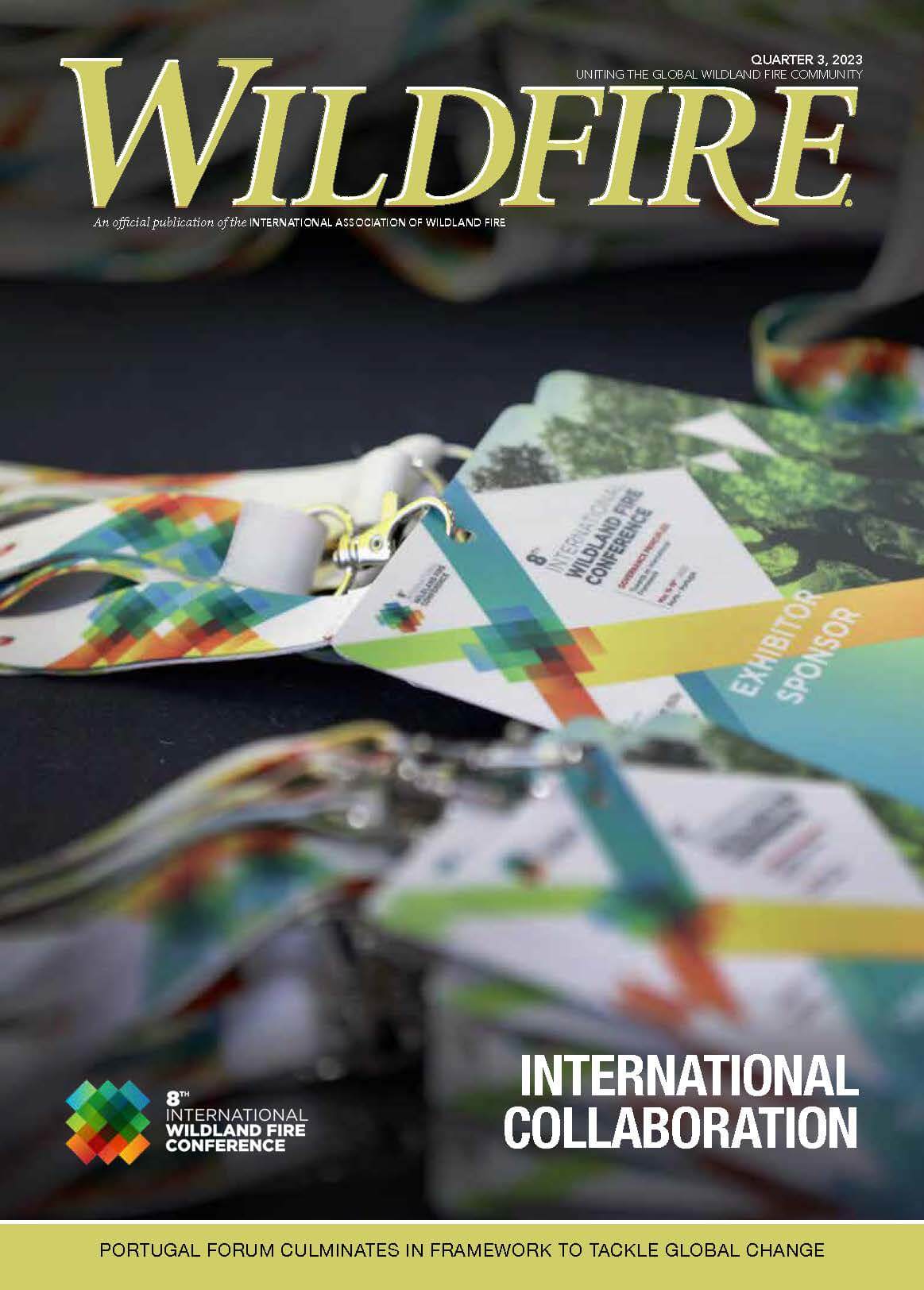
As a young fire researcher, I was glad to hear that the theme of the 4th Fire Behavior and Fuels Conference was “At the Crossroads: Looking Towards the Future in a Changing Environment.” Time and again we hear bleak predictions for the future, so it was welcome relief to listen to the international wildland fire community offer ideas on positively influencing the future.
It’s no surprise to the fire community – in the last 10 to 15 years we have seen unprecedented fire sea- sons, particularly in Australia, North America, Europe and Russia. Wildfires regularly threaten lives and communities and fire suppression expenditures take an ever-increasing chunk out of land management agency budgets. Complicated scenarios of increased fire season length coupled with drought and declining forest health suggest we are going to continue to see longer and more costly fire seasons. The good news is that we have the ability to manage wildfires to minimize many of the negative direct and indirect effects.
At the conference, I interviewed two researchers, Dr. Miguel Cruz from Australia and Dr. John Bailey from Oregon, and two managers, Dave Finn from Alberta and Gary Curcio from North Carolina. What I discovered emphasizes the need for applied research, enlightened management and torchbearers.
Applied Research
I consistently heard the argument that the previous 25 years has produced a considerable body of knowledge on which to base current and future management actions. It’s clear that the lack of fire and a warming climate in fire-prone regions of North America and Australia have contributed to conditions that increasingly put firefighters and communities at risk. As Dr. Bailey described to me, in much of the dry forests of the western United States, we have ample scientific evidence to support implementing large-scale projects using prescribed fire, natural fire or mechanical thinning to reduce the negative impacts associated with unplanned fire events. The major problem we face now: implementation.
Enlightened Management
A combination of outdated laws and policies coupled with cultural barriers are hindering the ability of fire managers to implement large scale projects. The good news is that it appears, at least in sections of North America, that we are making progress toward our long-term goal of building and living in fire-adapted landscapes and communities.
That isn’t to say we haven’t dealt with considerable setbacks, as noted by key- noter Bob Mutch who pointed out the pitfalls associated with last summer’s temporary policy of not allowing fires to be managed for resource benefit. From my conversations with Dave and Gary, it appears that the level of success experienced by fire managers is dependent on the specific location. In some management jurisdictions such as the R11 Forest Management Unit in west-central Alberta, Canada, the deliberate reintroduction of fire in a formal management context has only recently begun. In other cases, there has been a relatively long history of successful implementation of prescribed fire, especially in the Southeast United States, which was aptly described by Steven Miller in his plenary presentation. However, in most cases it seems we are falling far short of the area that needs to be treated in order to have a significant impact on reducing wildfire extent.
Torchbearers Needed
It’s clear – to deal with current and future challenges we must recognize the weaknesses of past approaches and quickly adapt our strategies to address the new issues. Steve Miller noted
that those of us directly involved in wildland fire management and research must be the torchbearers and continue to advocate for policies that expand the use of fire on the landscape. Those of us beginning our careers must both be willing to carry on the successful traditions of the past and not be afraid to make the necessary changes to face the future. Only through collaborative projects and highly adaptive organizations can we overcome and address the uncertainties associated with tomorrow’s fires.
– – – –
Wesley Page, a Ph.D. candidate in Forestry at Utah State University, has worked nine seasons on hotshot and engine crews and three years as a fire management specialist for the U.S. Forest Service.
